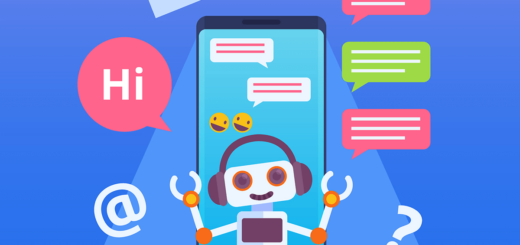AI-Powered Sales Assistants Are Reshaping Business Growth

For decades, sales teams have relied on human intuition, experience, and structured strategies to engage customers and close deals. While customer relationship management (CRM) software has streamlined operations, May 2023 marked a turning point as AI-powered sales assistants started transforming business growth strategies.
With the integration of large language models (LLMs) like GPT-4 into CRM platforms and sales automation tools, businesses were seeing AI assistants that could analyze customer behavior, generate personalized outreach, and optimize lead conversion with minimal human input. This shift meant that AI was no longer just a support tool but an active participant in sales operations, helping companies drive revenue more efficiently.
How AI Sales Assistants Were Changing Business Strategies
Traditional sales processes required extensive manual data analysis, personalized messaging, and lead qualification, often consuming valuable time. AI-powered sales assistants introduced a level of automation and intelligence that redefined these workflows by:
- Predicting customer behavior – AI models analyzed patterns in customer interactions, offering insights into which leads were most likely to convert.
- Generating personalized email and message drafts – AI-assisted outreach allowed sales teams to scale communication while maintaining a personal touch.
- Automating follow-ups and scheduling – AI handled reminders, meeting bookings, and multi-touchpoint engagement, reducing the burden on human sales representatives.
By incorporating AI into these critical areas, businesses were shortening sales cycles, reducing customer acquisition costs, and improving engagement rates.
Industries Embracing AI Sales Automation
The rise of AI-powered sales tools was particularly beneficial for companies that relied on data-driven decision-making and high-volume customer interactions.
1. AI in B2B and Enterprise Sales
- AI-assisted CRM tools helped sales teams identify high-value prospects and optimize lead nurturing strategies.
- AI-driven forecasting models allowed businesses to predict quarterly revenue more accurately, reducing financial uncertainties.
2. AI in E-Commerce and Retail
- AI-powered recommendation engines personalized customer outreach based on browsing history and past purchases.
- Automated AI chatbots assisted in handling customer inquiries and upselling products, increasing conversion rates.
3. AI in Financial and Real Estate Sectors
- Financial advisors leveraged AI assistants to analyze market trends and tailor investment opportunities for clients.
- AI-powered sales automation tools streamlined real estate prospecting, client follow-ups, and mortgage pre-approvals.
These implementations demonstrated how AI was actively shaping revenue generation and customer engagement across multiple industries.
Challenges and Limitations of AI Sales Assistants
Despite their advantages, AI-powered sales tools presented challenges that businesses needed to navigate carefully.
1. Risk of Over-Automation
- Customers might perceive AI-generated outreach as impersonal, reducing trust and engagement.
- Businesses had to balance AI-driven automation with human sales expertise to maintain strong client relationships.
2. Data Privacy and Compliance Concerns
- AI sales assistants relied on large datasets of customer interactions, raising questions about data security and regulatory compliance.
- Companies had to ensure AI models adhered to GDPR, CCPA, and industry-specific data protection laws.
3. Accuracy and Bias in AI-Generated Insights
- AI models sometimes produced inaccurate sales predictions, requiring human oversight for validation.
- Sales teams needed explainable AI tools to understand how AI recommendations were made.
Addressing these challenges was critical to ensuring AI-driven sales strategies were effective, ethical, and legally compliant.
The Future of AI in Sales and Business Growth
With AI-powered sales assistants becoming more advanced, the next phase of adoption was expected to focus on:
- AI-driven negotiation tools – AI would soon assist in real-time deal structuring, offering personalized incentives based on buyer psychology.
- Deeper integration with voice AI – AI sales assistants would incorporate natural language voice interactions, making phone-based customer engagement more seamless.
- AI-powered relationship intelligence – Future AI tools would track long-term customer relationships, identifying growth opportunities and risk signals.
As businesses increasingly embraced AI-powered sales automation, those who adapted early would gain a competitive edge in revenue optimization and customer engagement.
A New Era of AI-Driven Sales and Business Development
The introduction of AI-powered sales assistants in May 2023 marked a significant evolution in how companies approached business growth. These AI-driven tools were no longer just supporting sales teams—they were actively shaping and optimizing the sales process itself.
However, as AI took a larger role in customer interactions, companies had to find the right balance between automation and human connection, ensuring that AI-driven outreach remained genuine, effective, and aligned with customer expectations.




